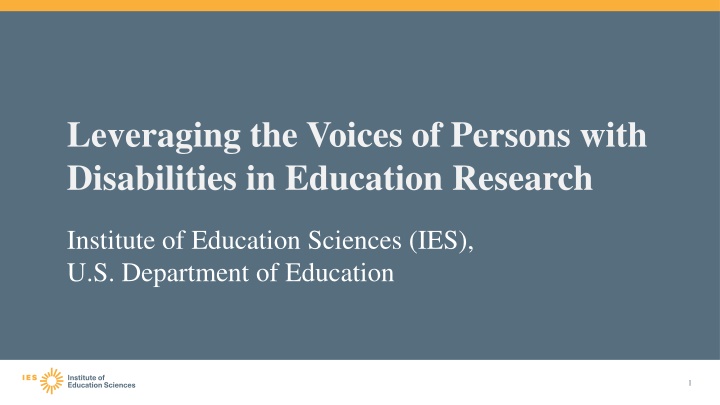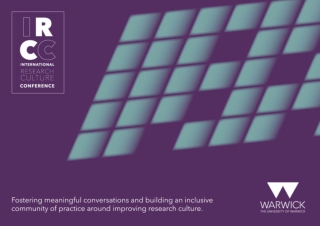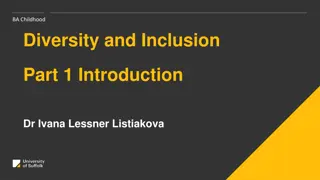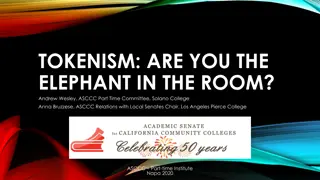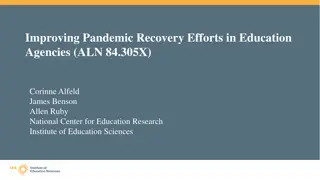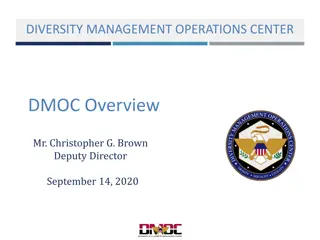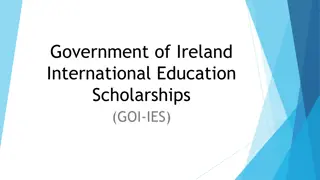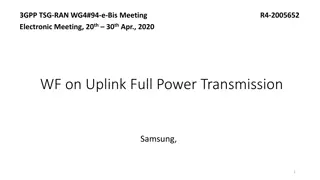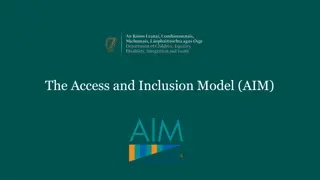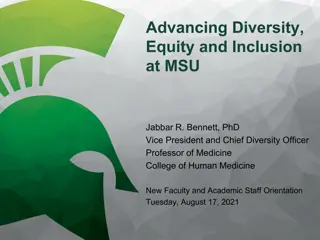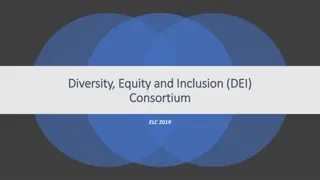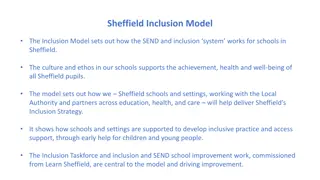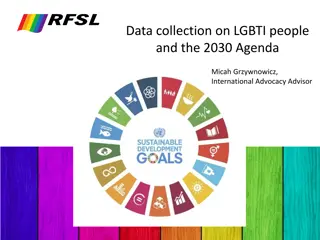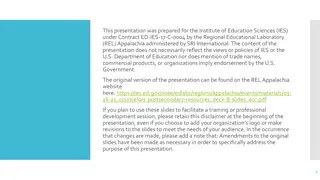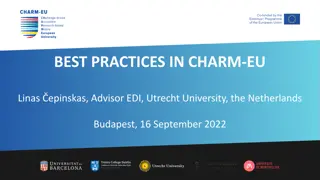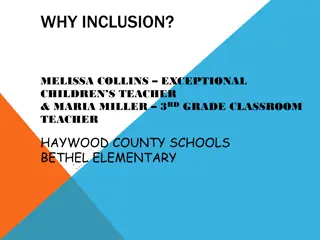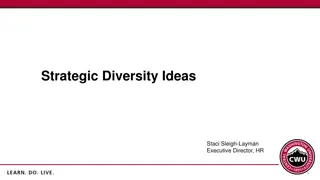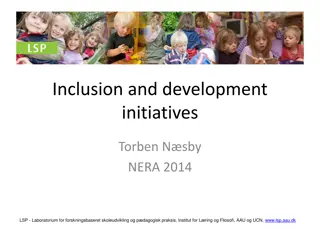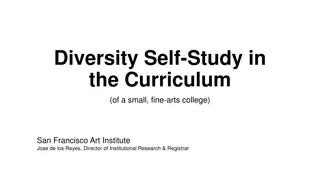Enhancing Diversity and Inclusion in Education Research at IES
This information highlights the efforts of IES, the U.S. Department of Education's research arm, to promote diversity, equity, and inclusion in education research grants programs. Through listening sessions and a commitment to attracting diverse talent, IES aims to identify and address systemic barriers to broaden participation and support accessibility in education research.
Download Presentation

Please find below an Image/Link to download the presentation.
The content on the website is provided AS IS for your information and personal use only. It may not be sold, licensed, or shared on other websites without obtaining consent from the author.If you encounter any issues during the download, it is possible that the publisher has removed the file from their server.
You are allowed to download the files provided on this website for personal or commercial use, subject to the condition that they are used lawfully. All files are the property of their respective owners.
The content on the website is provided AS IS for your information and personal use only. It may not be sold, licensed, or shared on other websites without obtaining consent from the author.
E N D
Presentation Transcript
Leveraging the Voices of Persons with Disabilities in Education Research Institute of Education Sciences (IES), U.S. Department of Education 1
Mute your microphone unless asked to speak During the discussion, you may respond in the chat or by raising your hand and coming off mute when asked to speak (you may also use your camera if you d like) Ground Rules If you would prefer to respond to the discussion questions through email or if you have follow-up questions or ideas, please send them to IESVirtualTA@ed.gov 2
All IES work benefits from diverse perspectives Our ability to support high-quality research depends on our ability to attract, train, and support talented researchers from all backgrounds Motivation for Today s Session This listening session is part of our process for considering unanticipated systemic barriers and learning how we can broaden participation in our research grants programs and better support diversity, equity, inclusion, and accessibility in education research 3
Background on IES Independent research arm of the U.S. Department of Education Established by the Education Sciences Reform Act of 2002, in part to improve academic achievement and access to educational opportunities for all students Comprised of four centers, as well as an Office of Science: National Center for Education Evaluation and Regional Assistance National Center for Education Statistics National Center for Education Research National Center for Special Education Research 4
Objectives of IES Education and Special Education Research Grants Programs Develop or identify education interventions (practices, programs, policies, and approaches) that enhance education outcomes and can be widely deployed Identify what does not work and thereby encourage innovation and further research Understand the processes that underlie the effectiveness of education interventions and variations in effectiveness Develop measures of academic achievement and progress Support research and national leadership on core issues 5
Objectives of IES Research Training Programs Prepare individuals to conduct high-quality education research that advances knowledge within the field and addresses issues important to education policymakers and practitioners Train and mentor students and researchers from diverse backgrounds in order to encourage their entry into and success within education research careers Improve the quality of education research and encourage new ideas, approaches, and perspectives 6
IES Office of Science The Office of Science oversees scientific peer review activities IES is required to have a peer review system for grant applications, involving highly qualified individuals The Office of Science is separate from the IES centers that fund research grants and contracts, provide technical assistance to applicants, and work with grantees and contractors This is intended to allow for an application review process that is as objective as possible 7
Peer Review of Grant Applications More information about the peer review process can be found at https://ies.ed.gov/director/sro/index.asp Individuals interested in serving on grant peer review panels can Visit https://iesreview.ed.gov/ReviewerRecruitment Contact Lisa.Bridges@ed.gov 8
Mute your microphone unless asked to speak During the discussion, you may respond in the chat or by raising your hand and coming off mute when asked to speak (you may also use your camera if you d like) Ground Rules Reminder If you respond to a discussion question in the chat or submit a question, we will read it aloud If you would prefer to respond to the discussion questions through email or if you have follow- up questions or ideas, please send them to IESVirtualTA@ed.gov 9
How have your disability and other intersecting identities shaped your experiences in becoming a researcher? How have your disability and other intersecting identities impacted (or how might it impact) your experiences applying for and conducting an IES research grant (including going through the review process)? Discussion How can IES support increasing the education research capacity of students, researchers, and organizations from various disability communities? 10
Thank You! Keep in Touch IESVirtualTA@ed.gov 11
